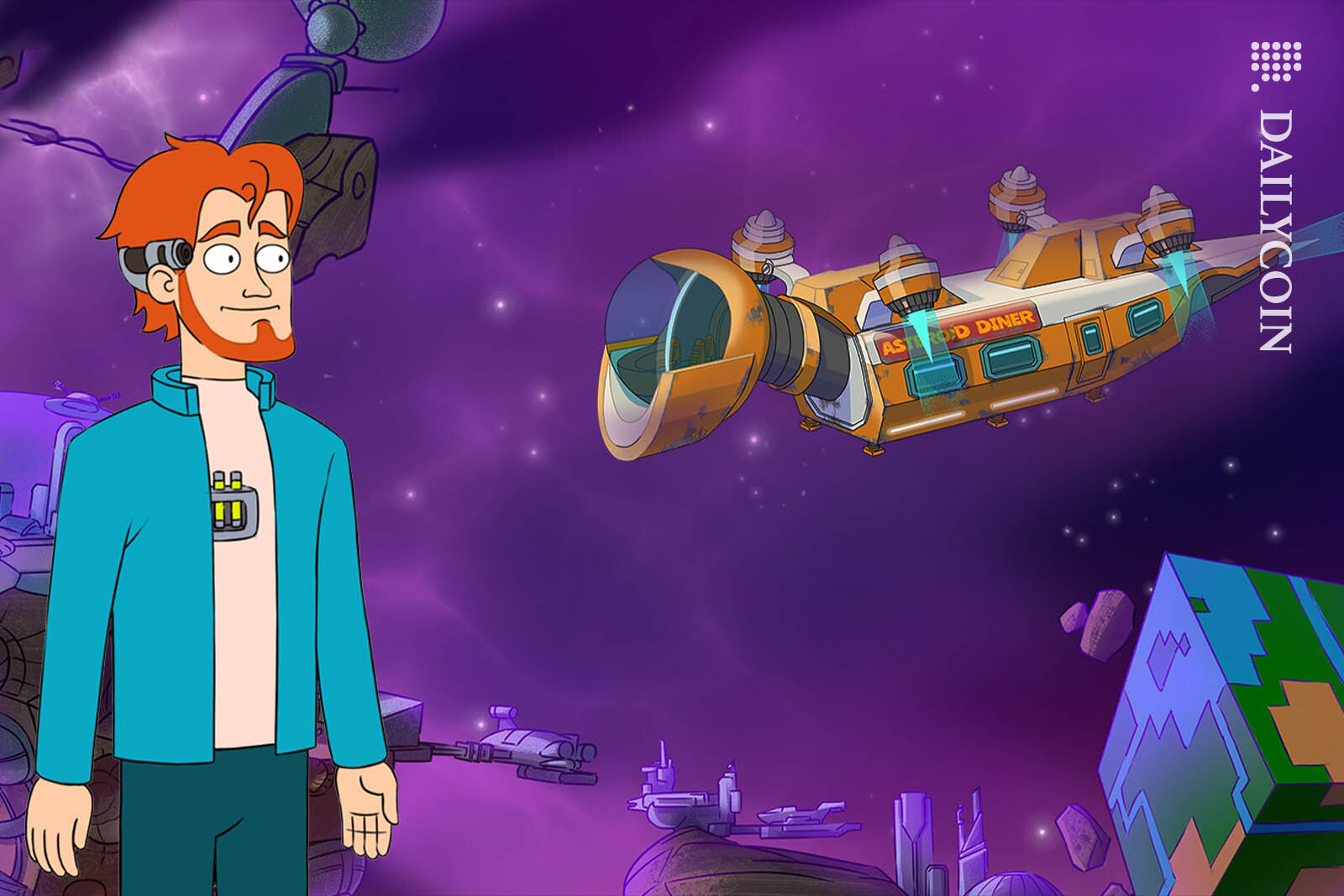
- Asteroid Diner is releasing an adult animated series.
- The team behind the series looks to engage its users and provide a more personalized experience through a unique approach to NFTs.
The NFT space is burgeoning with new ideas, changing how we interact with digital content. Whether it’s concert tickets, digital art, or games, NFTs are disrupting numerous industries with unparalleled capabilities.
A prime example is Asteroid Diner, an up-and-coming animated series that takes viewers on an interactive and intergalactic journey 300 years into the future enhanced by dynamic NFTs.
An Intergalactic Journey
Asteroid Diner, an eight-episode animated series following protagonists Dexter and Kita’s food truck adventures in space, looks to bring a fresh new concept to the sphere–an interactive series augmented by an unlock-as-you-go Web3 card game and NFTs that evolve according to the choices viewers make.
Set to debut in Winter 2023, the series, sharing similarities with the hit show Futurama, plans to immerse viewers into its characters’ journey using its NFT card game. Contraction will allow users to mint NFT packs and participate in new challenges as each episode airs, putting the player in the shoes of the main character.
Sponsored
The NFT cards will play a vital role in engaging Asteroid Diner’s viewers and creating a more personalized experience.
How to Play Contraction
To play the game, users are required to mint a Contraction NFT pack on the Asteroid Diner website. Each pack encompasses five NFTs: one dynamic PFP NFT character and four unique NFT item game cards.
Sponsored
The dynamic PFP NFT is the primary card in the pack and represents players’ journey throughout the series. After each episode, the PFP NFT will transform based on how players interpret the adventures and the cards they trade and hold.
Alongside dynamic PFP NFTs are game cards. The game card NFTs consist of 70 unique items, with each NFT having 400 copies, resulting in 28,000 NFT playing cards in the game.
As each episode airs, players will need these NFTs to find clues and solve riddles. By completing these tasks, players will gain a better understanding of which cards could help protect Dexter; from there, they can buy, sell, or trade game cards to create an inventory of the most suitable NFTs to help them win the game.
According to Asteroid Diner, Contraction is limited to 7,000 players. The team has shared that they will mint an additional ten copies of each game card NFT before the series starts, allowing players to trade cards even when players aren’t selling them.
While the show is set to debut before the end of 2023, Asteroid Diner NFTs are expected to be available for minting by early September 2023. An exact date and set of rules will be announced on the animated series’ official Twitter account.
On the Flipside
- Blockbuster TV show Game of Thrones released an NFT collection in January 2023 that sold out in less than seven hours. However, users weren’t happy with the quality of the NFTs.
- Gala Games, one of the industry leaders in the P2E space, also released an animated series on its Web3 streaming platform, Gala Films, in July 2022.
Why You Should Care
One issue faced by shows with staggered release times often lies in struggling to maintain engagement between episodes. Asteroid Diner represents a refreshing approach that keeps viewers on the edge of their seats with an immersive and rewarding experience that allows them to connect more closely to the show’s protagonist by giving them meaningful choices that are often lost opportunities in media.
Read how a Netflix show put users on a wild hunt for NFTs:
Netflix Show ‘Love, Death + Robots’ Invites Fans to NFT Scavenger Hunt
Bankrupt crypto hedge fund’s NFTs are up for auction:
Three Arrows Capital’s (3AC) CryptoPunk NFTs are to Be Auctioned off by Sotheby’s
